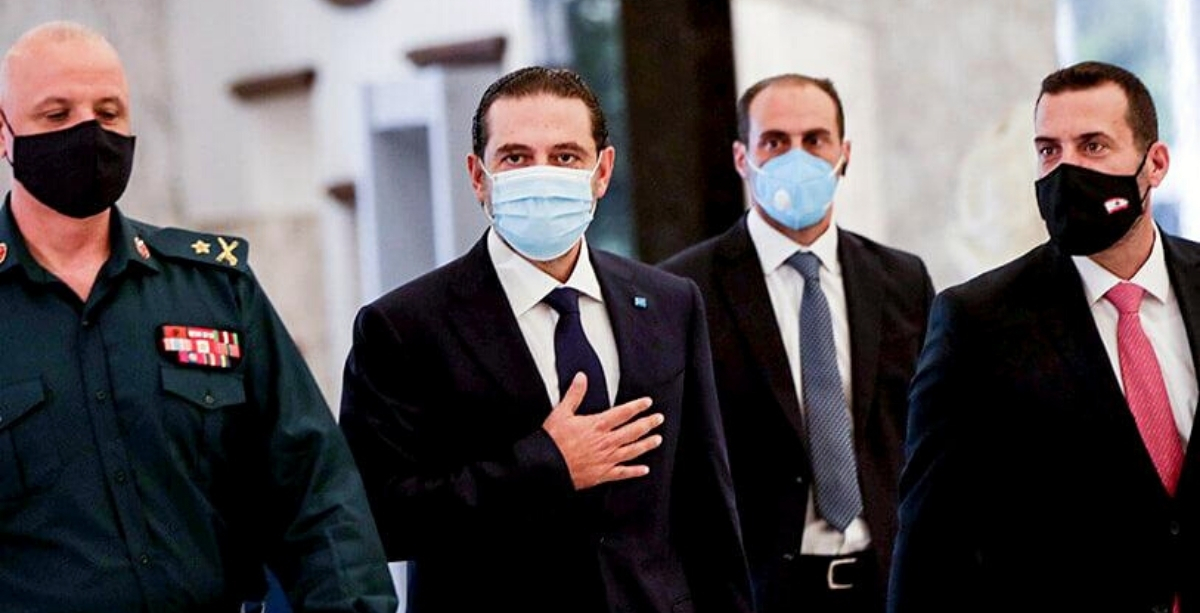Prime Minister-designate Saad Hariri’s appointment came in a very critical time for Lebanon, which looks nothing like it did a year ago when he was also the head of the government.
Since his resignation in October 2019, Lebanon has continued down the chaotic path of the early stages of him as Prime Minister.
Since his resignation, also, two premiers have taken his place and also failed to rescue the country, not even able to stop the continuation of its collapse. Obviously, the problem is not the ailing country but the ruling parties persisting with their obstacles to solutions.
With that said, the question that prevails after Hariri prepares to form a government for the 4th time since his first term in 2009 is the question of what he can do to achieve what his two predecessors failed to.
What will happen next?
It’s obvious that any new government that forms will have to deal with a considerable number of variables, internal and external.
But in Lebanon, and at this stage as we know, it is even more intricate, for the same reasons that brought it to its current disaster, brought Diab’s government to fail, and brought Adib’s to prompt to resign.
Today, the international community is intently watching for every new development arising in the country’s political space; the same community that Lebanon’s officials have no choice but to comply with to drive the country away from the worst.
This is why Hariri must form a government that conforms with the requirements of the “French initiative,” which offers a potential way out of the crisis through a set of conditions that the Lebanese officials must respect in forming a new government.
As it seems, in his own words, Hariri will ensure that the terms of the French initiative will be met by forming a government of “non-partisan specialists whose task is to implement the economic, financial, and administrative reforms mentioned in the French initiative’s paper.”
This was one of the promises that the newly-designated PM made to the Lebanese people, which included a similar promise to work to “stop the collapse that threatens our economy, society, and security, and to rebuild what was destroyed by the terrible port explosion in Beirut.”
Surely, the question remains, even if Hariri himself is keen on delivering these promises, whether there will be an agreement among the main parties on how the lineup of the upcoming government will look.
After all, Hariri, who has won the votes of over 100 MPs during previous nominations, was designated with a mere 65 votes on Thursday, with some of the major blocs refraining from naming him.
This indicates that government formation will probably be bumpy and could face another lengthy period as the country had previously witnessed.
When Hariri formed his 3rd government early last year, he did so after nearly 8 months of his designation, due to complications among the ruling parties. Needless to say, this time, there is no capacity for such a delay, or so it is hoped.
As Hariri himself said after his appointment, “time is running out, and the opportunity for our beloved country is the only and the final.”
Nonetheless, if Lebanon’s officials and parties refuse to cooperate – that is, to allow a government of true non-partisan specialists to take the helm – the Lebanese might see a repeat of the long vacuum scenario, followed by more chaos.
Trust is non-existent. The people have just witnessed another incredible scene where only one candidate was presented to be designated as PM, a candidate that was part of the same long-ruling class that failed the country and its people.
Would it be different this time? The weeks ahead will tell, if any.

